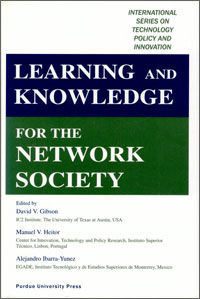 Innovation is a key driving force for sustainable growth, especially in emerging economies, and the shaping of regional policies that stimulate localized learning and innovation is the foundation for this growth. This book examines the challenges that decision makers face as they strive to develop policies that spur technology-based development and cooperation.
Innovation is a key driving force for sustainable growth, especially in emerging economies, and the shaping of regional policies that stimulate localized learning and innovation is the foundation for this growth. This book examines the challenges that decision makers face as they strive to develop policies that spur technology-based development and cooperation.
In general, the essays in this volume focus on innovation as factor of wealth creation, and technology as a tool of promoting welfare and the reduction of social inequalities. The international roster of contributors includes researchers, professors, government authorities, and entrepreneurs who work in the promotion of technology and innovation. They elucidate the processes of regional development through models, the structuring of policies, and the study of stressful experiences.
The first section, “Building the Learning Economy: Trends and Perspectives for Governance,” deals with the regulating and inductive role of the government, which is especially important in emergent countries. “Networking for Regional Economic Development: Looking for Inclusiveness” focuses on the crucial issue of the balanced distribution of benefits. Finally, the section titled “Language, Development, and Policy” discusses the seldom-considered role of language as a bridge – or a barrier – to the learning process in global societies.
This book grew out of the International Conference on Technology Policy and Innovation held in Curitiba, Brazil in June 2000.

